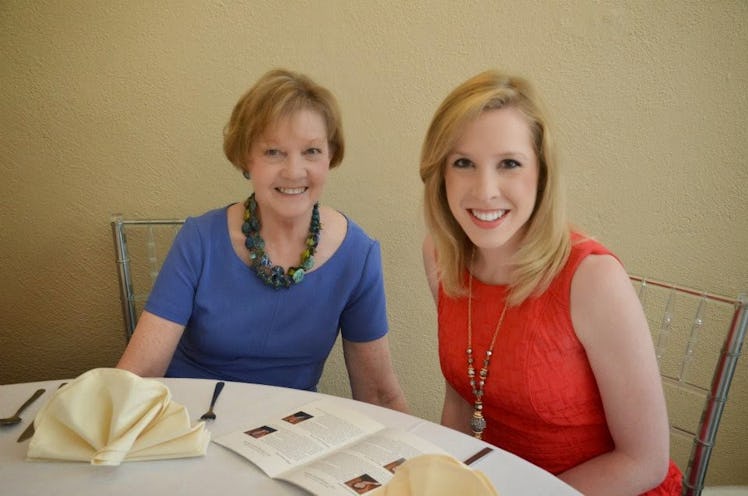
The Mom Of A Reporter Killed At Work Has A Message After The 'Capital Gazette' Shooting
It happens every time. That sinking feeling in the pit of my stomach, the pounding heart, the fear and dread. Every high profile shooting brings back that early morning in August almost three years ago when the phone rang and the voice on the other end said, “there were gunshots where Alison is doing a story.” Texting her to say, “please let us know you’re OK,” and getting no response.
Shaking my husband awake. Calling and getting Alison’s voicemail. Calling the hospitals, calling the police and sheriff’s offices, and getting no answers to our questions.
I knew it wasn’t OK.
What seemed like hours later, we got the call we dreaded — our beautiful 24-year-old daughter, Alison Parker, was dead along with her cameraman, Adam Ward. Even now, numbness sets in. Denial. And then grief.
The recent shooting at the Capital Gazette in Annapolis, Maryland hit me harder than usual. There were just so many similarities to the 2015 on-camera WDBJ7 shooting of Alison and Adam. Alison was born in Annapolis, and we lived in Maryland until she was four. Like Alison, the victims were journalists who reportedly knew their alleged killer. Like the alleged Annapolis shooter, the man who killed Alison allegedly plotted his revenge, planning and waiting. Both men attacked their targets while the journalists were doing their jobs, bringing the news to the communities they loved. Both men were known to be disturbed and angry, but despite the threats there was nothing police could do about it until the anger turned to violence. At that point, it was too late.
Gun violence has become the answer to every quarrel.
I don’t have to see the faces of those who lost family, friends and co-workers that day to know how they feel. I know. It eats you up, and even though it seems impossible you have to keep putting one foot in front of the other and go through the motions of life. I took Xanax for a year just to sleep. Without it, the dreams were more than I could take. I thought Alison was safe doing fluff pieces on the Mornin’ Show, and I’m sure that the families of the journalists at the Capital Gazette felt the same.
Journalists who travel to far off destinations to cover war and upheaval know that they are potential targets, but reporters for hometown television stations and newspapers are different. People rely on these media outlets for information about what is happening in their communities, and often they both wake up and end the day with the paper or local news programs. When Alison was killed during a live morning broadcast on Aug. 26, 2015, the viewers were devastated. She had brightened their day as they drank their morning coffee and dressed for work, and it felt like it had happened to someone they knew. I know that the people of Annapolis who read their copy of the Capital Gazette each day are grieving in the same way.
Where does this leave us? When Alison’s name was added to the Wall of Fallen Journalists at the Newseum in Washington D.C., most of the names of people she joined had been killed in other countries while covering violence and upheaval around the world — but not this time. Alison’s death shook the media industry. I heard stories from reporters who dropped to the ground when they heard a car backfire. Some broke into tears when interviewing us. Others left the business, and some who stayed were offered Kevlar vests to wear when on assignment. At the station where Alison worked in Roanoke, an intercom and buzz-in security system were installed at the front door, and the station no longer announces the location of the live segments in advance. All the while, the memorial built to honor the memory of Alison and Adam serves as a constant reminder of what happened that morning in August.
Gun violence has become the answer to every quarrel — road rage, bullying, being fired from a job, or a newspaper column someone didn’t like. Our schools, churches, malls, and movie theaters and concert venues are danger zones. We are better than this. No more politicians’ “thoughts and prayers” that are meaningless — our families, our friends, and the journalists who risk everything to report the news are not acceptable collateral damage for the NRA and the Second Amendment. It took my daughter’s murder to bring me to activism against gun violence.
What will it take for you?
Barbara Parker is the mother of journalist Alison Parker, who was killed by a disgruntled fired co-worker on August 26, 2015. Barbara and her husband Andy are now activists against gun violence and work with national and regional organizations to protest the lax gun laws in America.